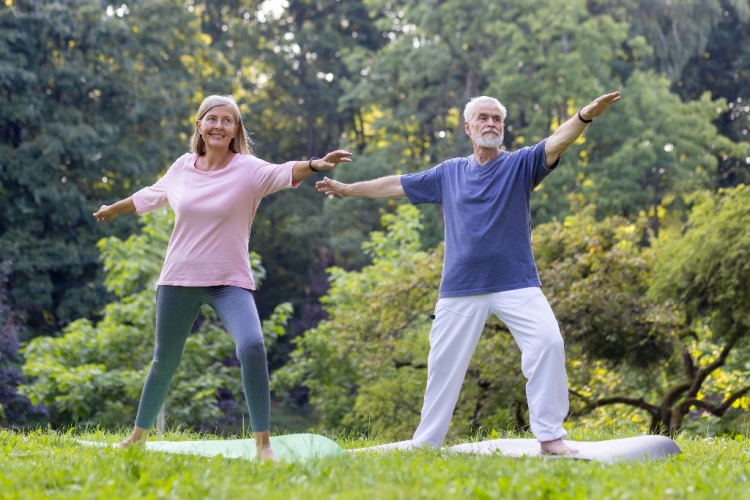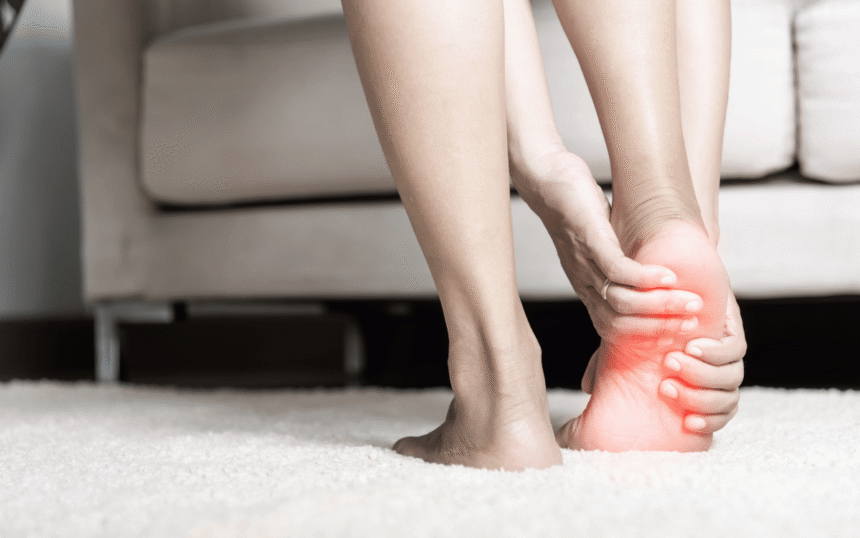Aging is a natural part of life, and growing older doesn’t have to mean giving up independence or vitality. In fact, with the right daily habits and mindset, seniors can continue to live full, meaningful, and healthy lives well into their golden years.
This guide will explore simple, actionable routines that promote physical health, mental clarity, emotional well-being, and lasting independence for older adults.
👟 1. Stay Physically Active Every Day
Regular movement is one of the most important habits for aging well. Exercise helps preserve strength, flexibility, balance, and energy.
Easy Ways to Stay Active:
- Walking: A 30-minute daily walk strengthens the heart and supports joint health.
- Stretching and yoga: Maintains flexibility and prevents stiffness.
- Chair exercises or tai chi: Ideal for balance and fall prevention.
- Gardening or light household chores: Keeps the body engaged naturally.
Tip: Aim for at least 150 minutes of moderate activity per week, as recommended by the World Health Organization.
🥗 2. Eat a Balanced and Nutritious Diet
Nutrition plays a critical role in maintaining strength, immune function, bone health, and brain sharpness.
Key Dietary Focus Areas:
- Calcium and Vitamin D: For bone strength (found in leafy greens, fortified milk, and sunshine).
- Fiber: To support digestion (whole grains, legumes, fruits).
- Lean protein: For muscle maintenance (eggs, fish, beans).
- Healthy fats: To protect heart and brain health (nuts, seeds, avocados, olive oil).
- Hydration: Older adults often experience reduced thirst—drink water regularly.
Tip: Limit processed foods, added sugars, and high sodium intake.
🧠 3. Keep the Mind Sharp
Mental stimulation helps delay cognitive decline and enhances memory and focus.
Mental Fitness Activities:
- Reading or puzzles
- Learning a new skill or hobby
- Brain games and apps
- Social interaction
- Listening to music or playing an instrument
Tip: Stay curious—lifelong learning is key to mental longevity.
💬 4. Stay Socially Connected
Loneliness and isolation can significantly impact physical and emotional health in seniors.
How to Stay Connected:
- Join a senior center or community group
- Schedule regular calls or video chats with loved ones
- Volunteer in the community
- Get involved in a hobby group or book club
Tip: If mobility is limited, technology like tablets and social media can help bridge the gap.
🧘 5. Practice Mindfulness and Manage Stress
Chronic stress can contribute to numerous health issues, including heart disease, memory loss, and weakened immunity.
Daily Mindfulness Practices:
- Meditation or deep breathing
- Gratitude journaling
- Nature walks
- Listening to calming music
Tip: Even 5–10 minutes of mindfulness a day can make a noticeable difference.
🩺 6. Keep Up With Regular Health Screenings
Prevention is better than cure—especially as the body ages.
Essential Health Checks:
- Blood pressure and cholesterol
- Vision and hearing
- Bone density
- Dental exams
- Annual physicals and vaccinations
Tip: Maintain a health journal to track medications, appointments, and changes in well-being.
🛌 7. Prioritize Quality Sleep
Good sleep is critical for memory, mood, immune function, and physical recovery.
Sleep Tips for Seniors:
- Maintain a consistent bedtime routine
- Avoid screens and caffeine before bed
- Keep the bedroom cool, dark, and quiet
- Limit long daytime naps
Tip: Aim for 7–8 hours of restful sleep per night.
🧴 8. Create a Safe and Comfortable Living Environment
Maintaining independence is closely tied to living in a safe, accessible space.
Home Safety Checklist:
- Install grab bars in bathrooms
- Ensure adequate lighting
- Remove loose rugs or tripping hazards
- Use non-slip mats
- Keep emergency contacts visible
Tip: Consider a medical alert device if living alone.
FAQs About Aging Gracefully
Q1: Can seniors build muscle and improve fitness after 60?
A: Absolutely! With proper exercise, older adults can build strength, improve balance, and increase flexibility.
Q2: How can seniors boost their immune system naturally?
A: Through good nutrition, adequate sleep, hydration, regular exercise, and stress reduction.
Q3: What hobbies are best for brain health in seniors?
A: Puzzles, gardening, painting, playing music, reading, and learning new skills all support cognitive health.
Q4: How can technology help older adults stay independent?
A: From medication reminders and smart home devices to video calls and fitness apps—technology offers support in many ways.
Q5: What role does hydration play in aging?
A: Proper hydration aids digestion, circulation, skin health, and mental clarity.
Q6: Is it ever too late to start living a healthier lifestyle?
A: No! Positive lifestyle changes can benefit health and well-being at any age.
Q7: How can caregivers support seniors aging gracefully?
A: By promoting autonomy, encouraging activity, offering emotional support, and helping maintain routines.
Q8: Can social interaction really impact physical health?
A: Yes! Studies show that staying socially engaged reduces the risk of depression, cognitive decline, and even chronic illness.
🌟 Conclusion: Aging Is a Journey—Make It a Vibrant One
Aging gracefully isn’t about defying age—it’s about embracing it with vitality, self-care, and purpose. Through daily habits like staying active, eating well, connecting with others, and nurturing the mind, seniors can enjoy independence, health, and happiness well into their later years.
Remember: small habits today shape a stronger, brighter tomorrow. It’s never too late to start living better—one mindful step at a time.









